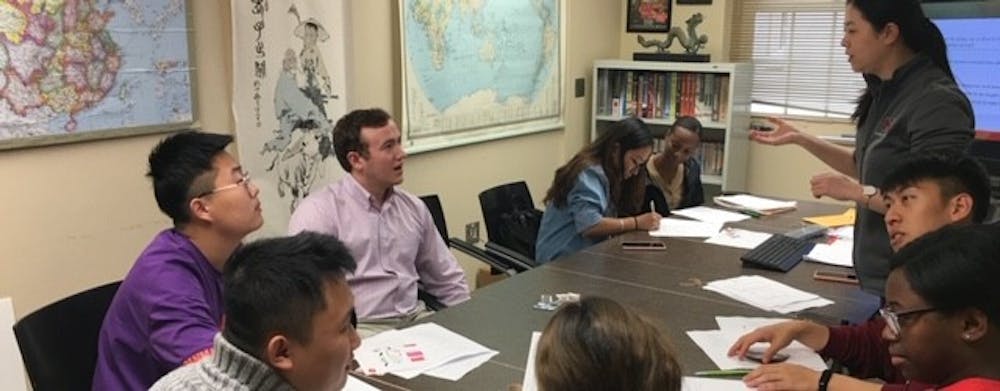After 13 years of operation, the Confucius Institute at Miami University (CIMU) is closing due to budget cuts.
According to Miami’s website, the CIMU’s purpose was to foster a learning environment for Chinese culture and language, an effort funded by the Chinese government.
The CIMU was the first Confucius Institute in Ohio and supported six student clubs, four visiting international instructors and hosted outreach events, such as an annual Chinese festival and Lunar New Year gala.
Confucius Institutes are established all over the world at different universities and partner with the Confucius Institute Headquarters, located in Beijing, and a university in China. Miami has been partnering with Liaoning Normal University in Dalian, China.
Events and international staff are both funded by Chinese government in order to teach Chinese language and culture.
Despite controversy that has closed several Confucius Institutes across the country, Miami wrote in a press release that the decision to close the CIMU was not based on a perceived threat to academic freedom.
Other universities have felt political pressure to close the institutions over issues of alleged Chinese state censorship. A report from two senators last February criticized the institutions and the Chinese government about a lack of transparency.
However, the United States Senate investigation conducted last February on Confucius Institutes found that the Chinese government has not done anything illegal in managing the institutes.
Kevin Garcia, a junior theatre major and film studies co-major, started working at the CIMU in the fall as a videographer to help promote club events. Garcia said he was “alarmed” to hear it was closing.
Garcia had not been made aware of the CIMU’s closing until the interview.
“I thought [the CIMU] was very important, as we have a large population of international students, and the Confucius Institute was a really good way of helping them integrate into the campus,” Garcia said.
Ruocheng Gong, a senior international student and president of the Chinese Traditional Music Ensemble, echoed Garcia’s thoughts.
Enjoy what you're reading?
Signup for our newsletter
“The Confucius Institute is my overseas sustenance,” Gong said. “There are a lot of my Chinese friends in it, and when I miss home, they are the ones I talk to.”
Cheryl Young, assistant provost of Global Initiatives, said the department could no longer fund the CIMU director and assistant director positions because of “difficult decisions about funding”, but it intends to establish an international student center in the space where the Confucius Institute was. The Confucius Institute funded the rest of the staff excluding those positions. Young said the center will appoint Miami teaching staff to run the new center.
“The new international student center will continue to support the clubs that were in the Confucius Institute,” Young said. “We don’t know exactly what the new center will look like. We’re focused on helping our Chinese staff transition right now and recognizing them for the work they have done here.”
Young said she assumes the Chinese staff will be relocated to another Confucius Institute after Miami closes the CIMU.
The new international student center is expected to open in August, but Young noted current circumstances with the pandemic keep future plans in flux.
Executive Director of the Confucius Institute U.S. Center Gao Qing said Confucius Institutes bring “a great deal of assistance” to American higher education through “mutual and transparent collaboration” between the U.S. and China.
“It is unfortunate that the Miami University community members will lose this educational opportunity,” Qing said.
The CIMU will officially close on June 30.
Gong heard about the closing of the CIMU through one of her friends.
“I am so surprised,” said Gong. “I thought the Confucius Institute was a very good platform to give the Chinese [students] a chance to develop their interests and share Chinese culture.”




